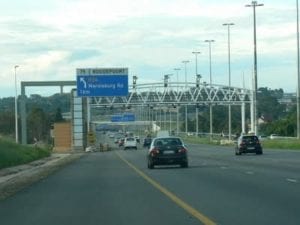The government expects the Gauteng e-tolling to be operational before the end of the year.
Merry Christmas!

In February, the Treasury was forced to allocate R5.75 billion to SANRAL, which borrowed R20 billion of the R30 billion cost of the Gauteng Freeway Improvement Project, to ease the agency’s cash flow problem after the implementation of tolling had stalled a fourth time.
There is still a chance that tolling on Gauteng’s freeways could be disrupted, if not scrapped entirely, with a legal challenge led by the Opposition to Urban Tolling Alliance, a pressure group.Hearings for the legal review of SANRAL’s procedures to implement the tolling system have been set down for 26 November. Business Unity South Africa (Busa) says there are “still some difficulties to be ironed out before the project can be implemented”. “There remains widespread criticism of the impact which e-tolling will have on the regional and national economies and it is important to use the time available to ensure that confidence is built in the final decisions before they are implemented,” says Busa.
While a new financial injection will relieve SANRAL’s debt burden, it is likely to stretch the Treasury’s resources, forcing it to divert funds from other projects.
“Can the tariffs still change? Yes. And that can have an impact on what we would need to make available to SANRAL,” stated Marissa Moore, a director of public finance at the Treasury, last week. Transport Minister Ben Martins says that Cabinet had decided to go ahead with e-tolling as a funding mechanism for the improvements made to the Gauteng freeway network.







